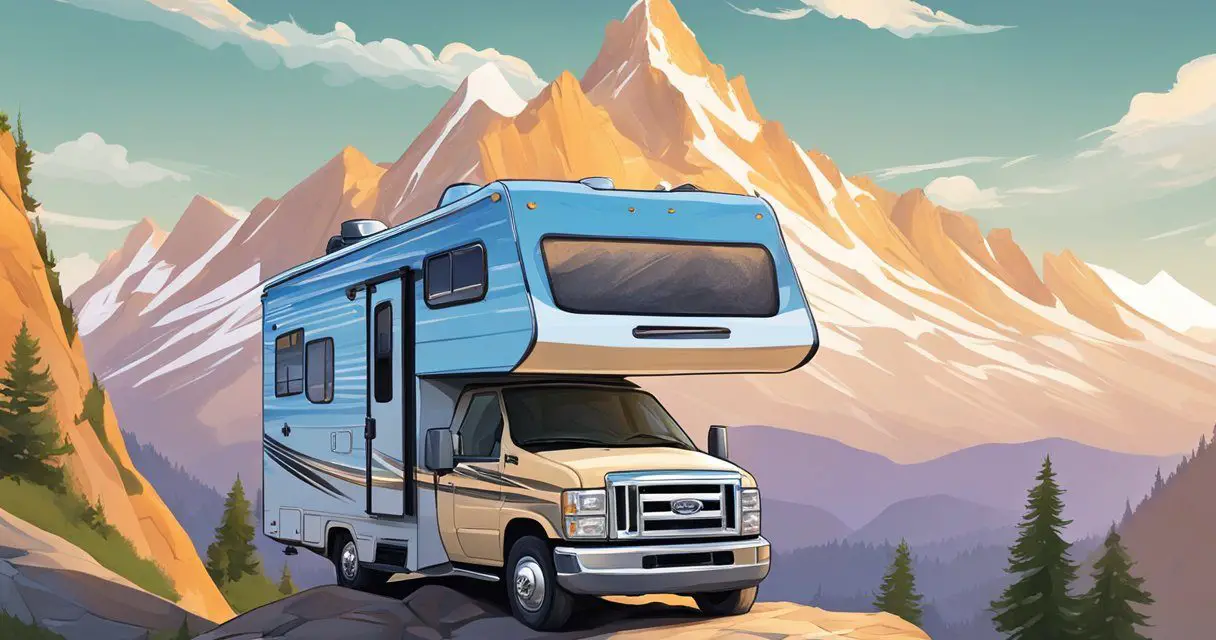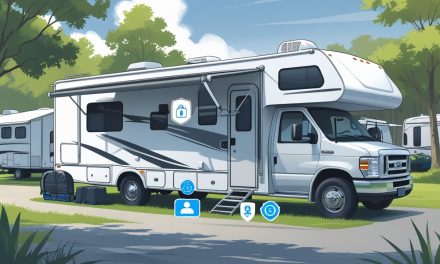RV adventures offer incredible freedom to explore, but sometimes campgrounds can feel crowded and limiting. That’s where boondocking comes in – a style of camping that lets RVers stay in more remote, undeveloped areas without hookups. It’s a way to truly get off the grid and immerse yourself in nature.
In our newsletter, we asked the question “Do you prefer boondocking or staying at RV parks?” and boondocking was at the bottom of the list with only 8% saying they prefer this.
Boondocking allows RVers to camp for free or very cheaply in beautiful locations away from busy campgrounds. While it requires some extra preparation and self-sufficiency, many RV enthusiasts find the rewards well worth it. From breathtaking views to total peace and quiet, boondocking opens up a world of unique camping experiences for those willing to give it a try. Let’s explore some of the top reasons RVers should consider venturing into the world of boondocking. Lets see if you will reconsider!
1) Freedom of Location
Would you like to save this article?
Boondocking offers RVers unparalleled freedom to choose where they camp. Unlike traditional campgrounds with designated spots, boondockers can set up in remote, scenic locations.
This flexibility allows travelers to embrace off-grid camping and explore areas that are inaccessible to most. They can wake up to breathtaking mountain views or fall asleep to the sound of crashing waves.
RVers who boondock aren’t bound by campground schedules or reservation systems. They can stay as long as local regulations allow, often without set check-in or check-out times.
This freedom extends to spontaneous travel plans. Boondockers can change their itinerary on a whim, discovering hidden gems along the way. They might stumble upon a picturesque forest clearing or a secluded desert oasis.
The ability to camp in diverse locations also allows RVers to follow good weather or chase adventure. They can escape crowded tourist spots and immerse themselves in nature’s tranquility.
2) Cost Savings
RV boondocking offers significant financial benefits for adventurous travelers. Unlike traditional campgrounds or RV parks, many boondocking locations are free or very inexpensive.
This can lead to substantial savings, especially for those who enjoy extended trips or full-time RV living. By avoiding nightly fees at campgrounds, RVers can stretch their travel budgets further.
Public lands often provide free parking for RVs, allowing travelers to enjoy beautiful natural settings without the added expense. This cost-effective approach to camping enables RV enthusiasts to explore more destinations and stay on the road longer.
The money saved on camping fees can be redirected towards other aspects of travel, such as fuel, attractions, or upgrades to the RV itself. For budget-conscious travelers, boondocking presents an attractive option to maximize their travel experiences while minimizing expenses.
By embracing boondocking, RVers can enjoy the freedom of the open road without breaking the bank. This cost-saving benefit makes it an appealing choice for those seeking affordable and adventurous RV travel experiences.
3) Peace and Quiet
RV boondocking offers a serene escape from the hustle and bustle of crowded campgrounds. Campers can find tranquility in remote locations, far from the noise of neighboring RVs and busy roads.
The absence of generators and loud conversations creates a peaceful atmosphere, allowing RVers to fully immerse themselves in nature’s sounds. Boondocking provides a more immersive and adventurous camping experience that’s hard to beat.
Many RVers appreciate the opportunity to enjoy the outdoors without disturbances. They can relax, read a book, or simply sit back and listen to the chirping of birds and rustling of leaves.
This quietude also extends to nighttime, where campers can stargaze without light pollution or city noises interfering. The peaceful environment fosters a deeper connection with nature and allows for better sleep.
RV boondocking offers a true sense of freedom and the chance to fully immerse oneself in nature. The peace and quiet found in these remote locations can provide a much-needed break from the constant stimulation of modern life.
4) Environmental Impact
Boondocking allows RVers to embrace a more eco-friendly camping experience. By staying in undeveloped areas, campers can significantly reduce their environmental footprint compared to traditional campgrounds.
Off-grid RVing encourages the use of renewable energy sources like solar panels. This decreases reliance on fossil fuels and helps minimize air pollution.
Boondockers often become more mindful of their resource consumption. They learn to conserve water and electricity, developing habits that benefit the environment even when they’re not camping.
Responsible boondocking practices include leaving no trace and respecting wildlife habitats. This helps preserve natural areas for future generations to enjoy.
RVers who boondock tend to generate less waste. They’re more likely to reuse items and properly dispose of trash, reducing the impact on local ecosystems.
By choosing less crowded locations, boondockers help distribute the impact of camping across wider areas. This prevents overuse of popular campgrounds and protects fragile environments from excessive foot traffic.
5) Connection with Nature
Boondocking offers RVers a unique opportunity to immerse themselves in nature’s beauty and peacefulness. Away from crowded campgrounds, boondockers can experience the great outdoors in its purest form.
This type of camping allows RVers to escape the crowds and have a more intimate relationship with nature. They can wake up to the sounds of birds chirping, rather than the noise of neighboring campers.
Boondocking provides ample chances to observe wildlife in their natural habitats. RVers might spot deer grazing at dawn or hear coyotes howling at night.
The lack of light pollution in remote boondocking locations offers spectacular stargazing opportunities. On clear nights, the Milky Way can often be seen stretching across the sky.
Connecting with nature through boondocking can be a rejuvenating experience. It allows RVers to unplug from technology and reconnect with the natural world around them.







